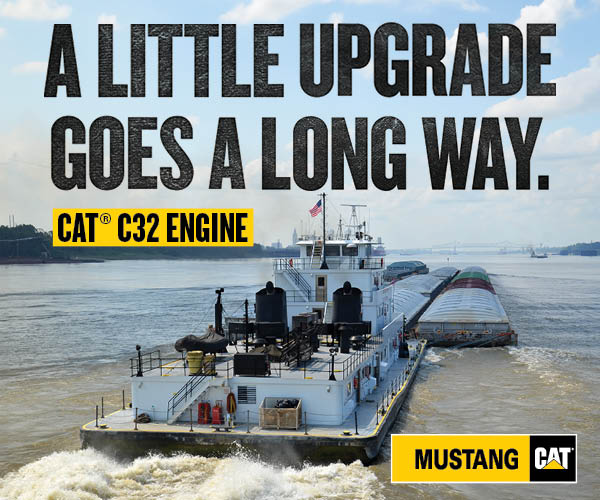Coast Guard Proposes Radar Renewal Change
A Coast Guard proposal to change what it says is an “obsolete” radar observer renewal requirement from merchant mariner credentials has a 30-day comment period. The proposal has sparked varied reactions from the brown-water community.
The Coast Guard posted the proposed rule in the Federal Register on June 11, with comments due by July 11.
The change proposed would “remove obsolete portions of the radar observer requirements and harmonize the radar observer endorsement with the merchant mariner credential,” according to the proposal.
Currently, an inland mariner has to renew his or her radar observer endorsement once every five years. Under the proposed change, an active mariner who serves in a “relevant position for one year in the previous five years” and uses radar, or who has served as a qualified instructor for a Coast Guard-approved radar course at least twice within the past five years, would not be required to complete a Coast Guard-approved radar refresher or re-certification course in order to renew his or her radar observer endorsement.
The proposed change would not alter existing requirements for mariners seeking an original radar observer endorsement, or mariners who do not have either one year of relevant sea service on board radar-equipped vessels in the previous five years or service as a qualified instructor for a Coast Guard-approved radar course at least twice within the past five years.
“Elimination of the requirement to take a radar refresher or re-certification course every five years would reduce burden on affected mariners without impacting safety,” the notice summary says.
Greg Menke, business development and compliance manager at Evansville Marine Service and a veteran of many maritime advisory committees, told The Waterways Journal that the measure was recommended to the Coast Guard by the Merchant Marine Personnel Advisory Committee (MERPAC) and is something that a lot of brown-water mariners have wanted.
Menke, who has taught radar certification classes, said he favors the proposal. He agrees that for captains and pilots, who work with radar every day, the renewal requirement is unnecessary.
Bill Kline—Coast Guard veteran and president of The River School, which offers training in radar among other inland marine certifications and courses—has a different view.
Kline said Congress has ordered the Coast Guard to “harmonize” and align as many expiration dates as possible among all the various documents a merchant seaman requires. The varying deadlines, sometimes called “license creep,” were a burden of time and expense to many mariners. Missing just one deadline could put a mariner’s career and income at risk.
Kline notes that blue-water mariners have more documents to harmonize than brown-water sailors. “Some of those documents are not under Coast Guard control, like the medical endorsement [that depends on each person’s medical history], or the Transportation Worker Identification Credential [TWIC], which is controlled by a different agency [the Department of Homeland Security]. So it may be that the Coast Guard felt that the easiest way to ‘harmonize’ the radar requirement was to get rid of it,” he said.
The background to all brown-water discussions of radar training remains the Bayou Canot train derailment. On September 22, 1993, the mv. Mauvilla mistakenly went up an un-navigable channel in thick fog and struck a railroad bridge with a heavy tow. The pilot’s unfamiliarity with proper radar skills was blamed. Eight minutes after the bridge strike, an Amtrak passenger train struck the deformed bridge and derailed, killing 47 people and injuring 103. It remains the single deadliest train accident in Amtrak’s history.
Soon afterward, the Coast Guard imposed the current radar training requirements on vessel operators in the inland industry.
“Plotting a triangulated course is impractical and unnecessary on most inland routes. The technology we have today makes it unnecessary, especially for those using radar every day,” says Menke.
Under this proposal, the renewal requirement remains in effect for those whose licenses are not active, or who may need to know something about radar even if they are not using it every day, such as port captains.
Kline says there is much more to radar than just plotting courses. “Plotting triangles was never appropriate for collision avoidance on rivers, and The River School did not teach that technique. Radar on the rivers is primarily used for navigation. There are techniques and skills for radar navigation and collision avoidance that don’t involve trigonometry.”
“Radar is the only electronic navigation equipment currently required on towing vessels,” Kline points out. “While many inland mariners maintain proficiency in the use of radar, it is by no means universal. An equal number benefit from a refresher course. Those skills are perishable. Just demonstrating them once at the beginning of your career may not be enough. They need to be renewed. I don’t think asking mariners to demonstrate their radar skills once every five years is unreasonable.”
Menke said that he has long asked the Coast Guard to approve an online course for radar certification, so that mariners wouldn’t have to travel.
Both Menke and Kline urge anyone concerned about this issue to get their comments in by the July 11 deadline.
Comments identified by docket number USCG-2018-0100 may be submitted using the Federal eRulemaking Portal at www.regulations.gov.



